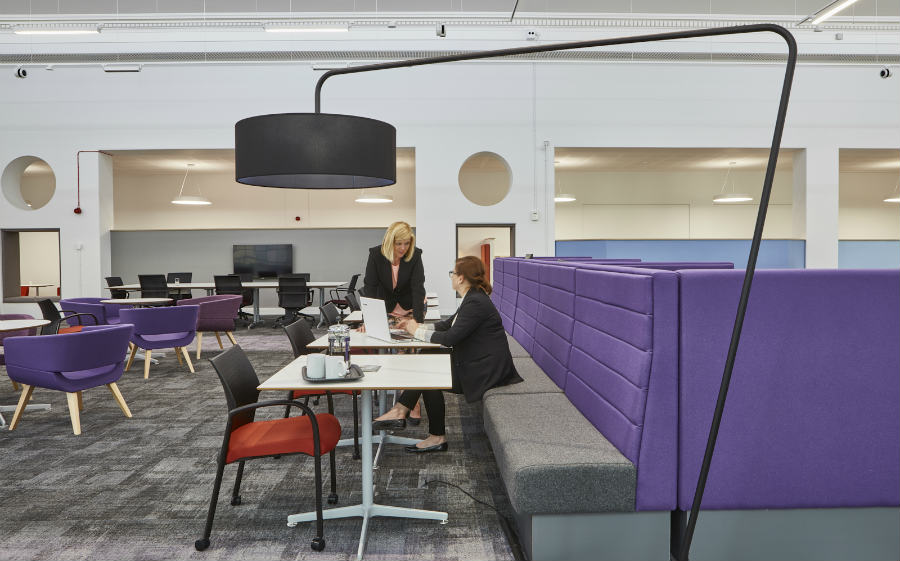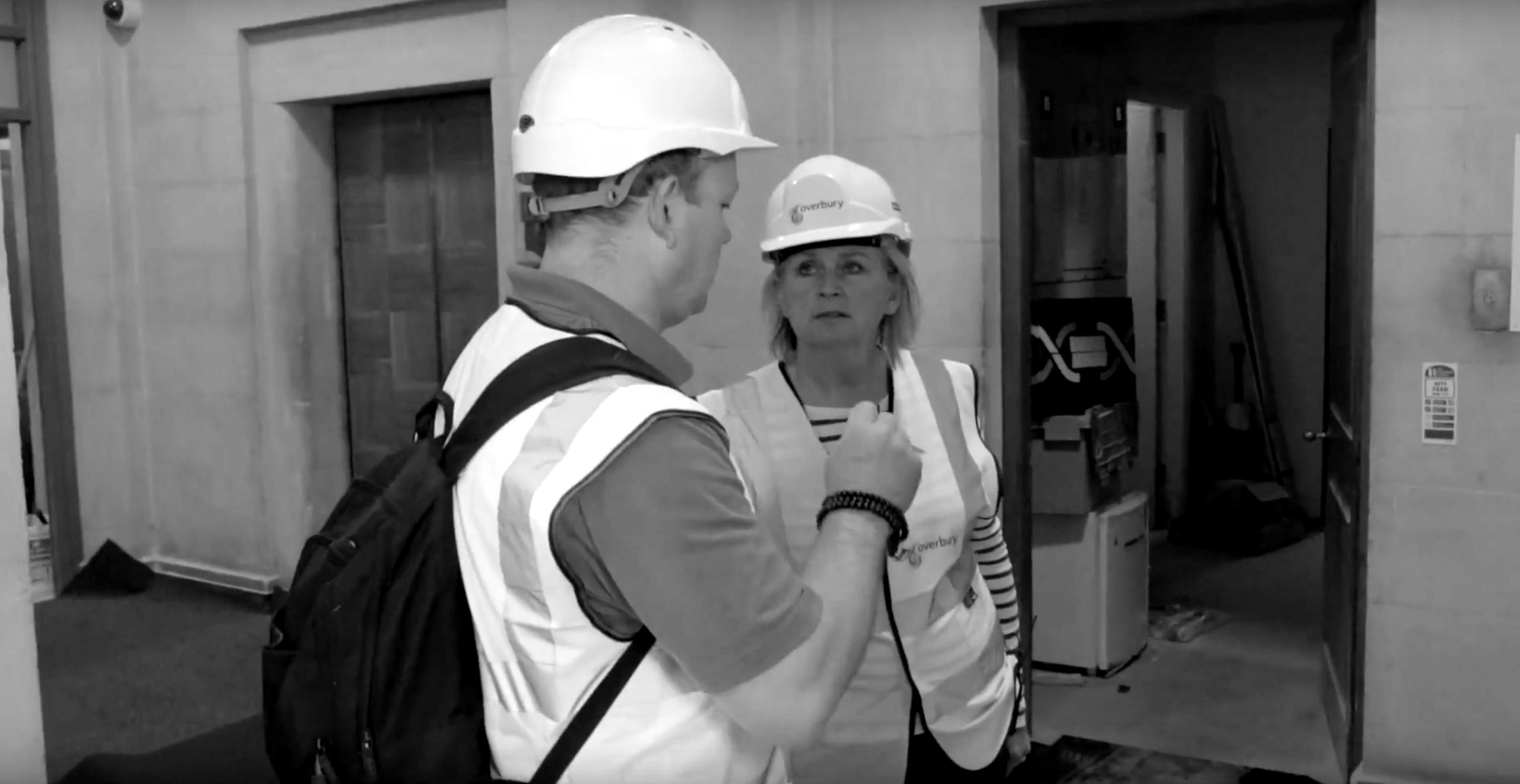— The PLACEmaking blog
Predictions for the workplace in 2020
Author
Alison White and Fintan BurkeDate
January 13, 2020With the new year comes a new decade with new challenges to how we look at the workplace.
The 2010s saw dramatic change in the workplace, with the increase in remote working and adoption of flexible working hours changing how we view the places where we work and how we approach our working week. What does the future hold for the next decade? Here are PLACEmaking’s five workplace predictions for the 2020s.
1. We are rethinking how where we work fits in with our long term career plans
The 2010s saw a shift in our priorities, with changes in what we expect from the places we work and the organisations we work for. Technological advances and changes to work culture mean that remote working is increasingly accepted, making the traditional concept of the office out of date and no longer relevant to what we want from the workplace.
In a previous blogpost we’ve examined how younger people entering the workforce are turning down job offers because they find many workplaces uninspiring – which represents a shift in priority away from the traditional approach to our places of work. This also applies to our changing attitudes to what we expect from the organisations we work for, and the 2020s will see us refocus on how our jobs fit into our wider career plans and ambitions.
If a ‘job for life’ is no longer guaranteed or desirable, people will be looking to generate multiple forms of income away from a primary job. Fewer of us will consider our current jobs to be fixed or permanent, and with that comes a shift in what we expect from our employers as part of our long term career goals.
In turn, employers will need to contribute more to their employees’ sense of personal growth and career progression – both inside and outside of the organisation – if they are going to attract and retain the talent they want.

2. Workplaces will continue to get smaller and that’s a good thing
As work moves away from the office, the need for physical space is getting smaller. Headquarters no longer need to be larger to accommodate more staff and the concept of the building as status symbol no longer applies. With this comes a need for different approaches to how we view the different spaces where we work.
As buildings are being left empty for longer, alternative ways of using traditional office spaces are beginning to emerge. So as organisations begin to reduce the footprint of their workplaces, they will begin looking to alternative solutions such as moving into shared space or leasing unused space out to others.
This represents a progressive and potentially exciting way to consider the places where we work. Shared space can encourage collaboration and reduce costs. Smaller, shared workplaces can mean having access to bigger ideas benefiting employees and employers. Over the next decade we can expect to see an increase in the use of these shared working spaces as organisations continue to rethink how they use space
3. We want to look after our wellbeing – organisations will need to as well
How we approach work has changed with emerging concepts such as the four-day week. Growing numbers of organisations are putting such changes into effect. With growing evidence that compressed hours have a proven practical benefits to those organisations that have tried implementing them, the greatest potential upside is to employees’ health and wellbeing.
Spending less time in the office can actually increase productivity as well as giving us all a better work-life balance, making our lives easier and our work more rewarding. By acknowledging this and making sure that they prioritise wellbeing, organisations can expect a happier and more productive workforce.
As remote working and compressed hours become more common, we predict a change in how we view when we work as well as the places where we work. Organisations will not only have to keep up with this change but will also have to become more proactive in seeking bespoke solutions to reflect emerging and changing needs, recognising that they need to take care of talented resources if they hope to both attract and retain them.

4. As our way of working changes, so too will our demands on the infrastructure and services we depend on
The changes to the working week are also going to be felt by support industries outside of workplaces themselves. More flexible ways of working and a drift from dependency on a single employer towards a cocktail work sources means that the traditional rhythm and routine of the working week is increasingly redundant, and the support mechanisms put in place need to reflect this.
Gone are the days of a predictable 9 to 5 Monday to Friday working week, and the organisations that provide essential services such as childcare support, transport infrastructure and health and education services – as well as food retailers and hospitality and leisure providers – are going to have to adapt to their customers’ changing demands by providing more flexibility.
Attitudes to ‘what a job is’ will also need to change, with the financial services industry forced to accept that ‘a job for life’ is no longer the norm. The housing market currently concentrated on major cities or the commuter belts around them will need to reflect changing patterns of where people work, and how and when they travel. Less need for commuting will offer smaller towns greater opportunity to retain talent and host shared work hubs in their high streets, thereby creating more opportunity for local business and services providers to emerge, thrive and prosper.
5. Workplace technology will finally start to live up to its potential
Once one the biggest causes of office frustration, the 2020s could see workplace ICT finally start to live up to our expectations. We’ve looked before at what a future with better technology in the workforce might look like, and there is the real possibility that this next decade will be the time where this begins to happen.
Technology will continue to improve and become more accessible and we will see wider integration into the workplace. We can also expect to see a positive change in how new technology is adopted, with more people entering the workforce who grew up with easy access to technology such as WiFi and mobile devices. This cultural shift will see a better understanding of the potential that workplace technology offers – ICT no longer needs to be hindrance to our work and we can expect the workplace to embrace better, more intuitive technology in the near future.
We have already seen the development and widespread use of ‘virtual assistants’ such as Siri and Alexa in our day to day lives – we’ll see the integration of the same kind of voice command technology in the workplace finally reducing dependency on keyboards and the use of traditional desks.
Subscribe to our mailing list
Let's Work Together
Office
Box 18, Boxworks
Clock Tower Yard,
Bristol BS1 6QH

